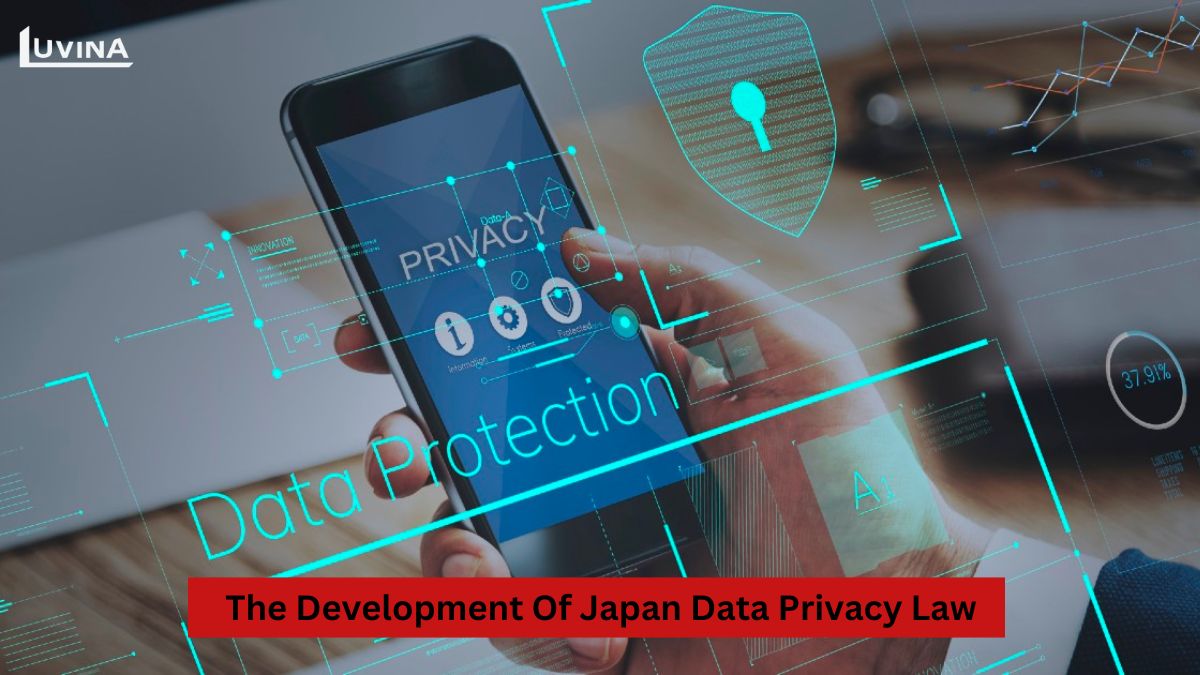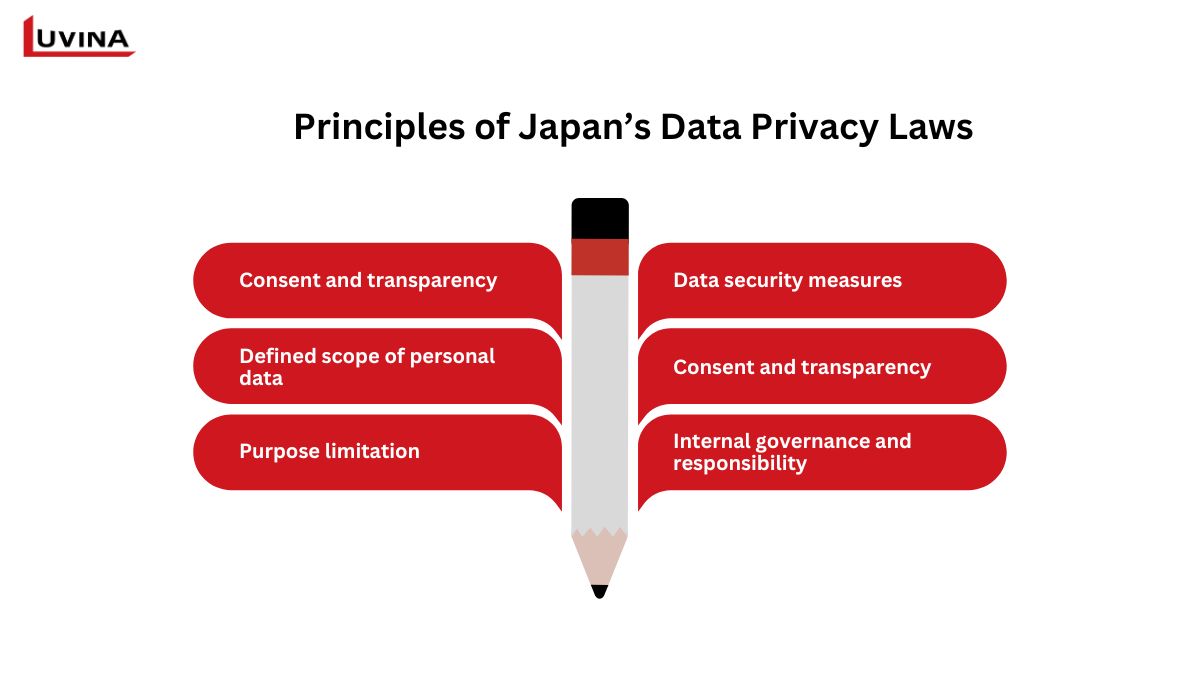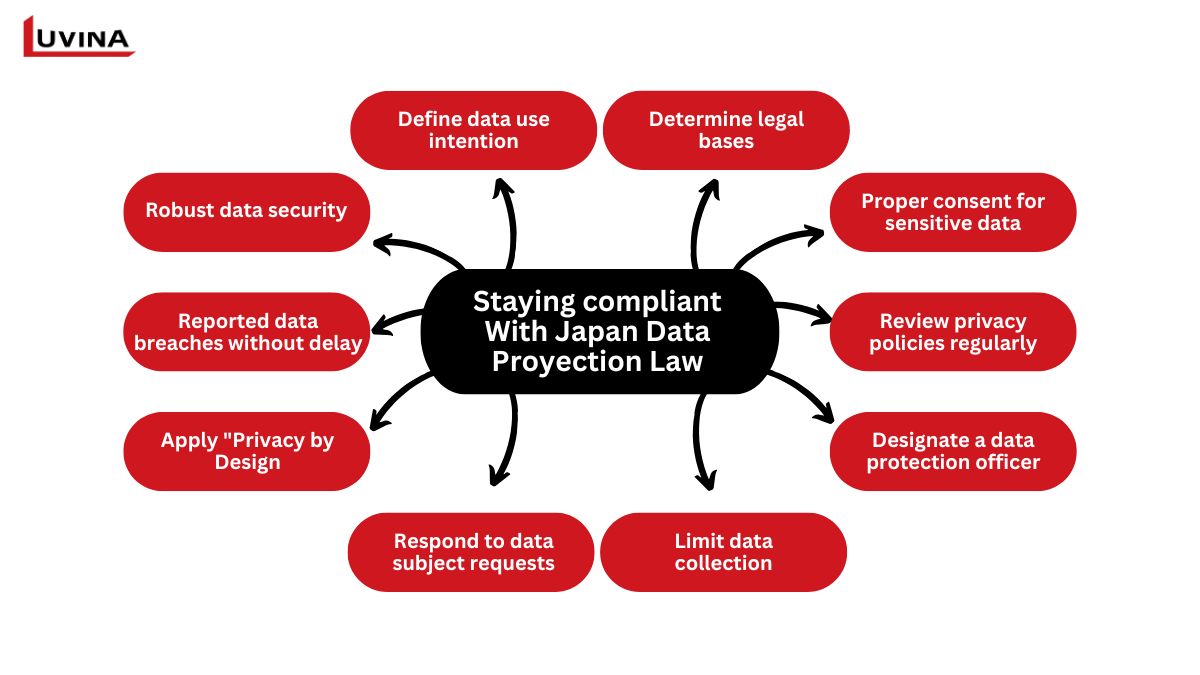The third-largest economy in the world, Japan, has adopted one of the most thorough privacy policies in Asia to safeguard personal information in the digital era. First passed in 2003 and substantially revised in 2017 and 2020, the Japan data protection law now closely conforms with worldwide norms such as the GDPR; it rests on the Act on the Protection of Personal Information (APPI). As data breaches rise globally, understanding the Japan Data Protection Law (APPI) is essential for any business operating in or with Japan. This guide explores key regulations, compliance strategies, and how Japan’s law compares to the GDPR.
Why Data Privacy Matters in Japan’s Business Landscape
In the super-connected world of today, data breaches are no longer unusual—they are serious incidents with long-term repercussions. Events with businesses including Uniqlo, Mitsubishi, and Benesse have revealed roughly a million personal records and shaken public faith firsthand in Japan. Not only have these incidents shown the weaknesses in corporate data policies, but they have also sped up the development of Japanese data privacy laws.

First enacted in 2003, the Act on the Protection of Personal Information (APPI) has been revised considerably to meet worldwide norms and solve current privacy problems. These updates seek to solidify consumer protections, ensure accountability, and foster a compliance culture. As per the Japan Act on the Protection of Personal Information (APPI), businesses of any size and scope must comply with these laws. Not following is not only about penalties; it is also about losing customer trust and the capacity to function in a data-sensitive environment like Japan.
Understanding APPI: Japan’s Act on the Protection of Personal Information
First passed in 2003, the Act on the Protection of Personal Information (APPI) is Japan’s main legal basis for the protection of personal data. To accommodate digital transformation and better match with worldwide data privacy standards, this core Japan data protection law has seen several important modifications over the years, particularly in 2017 and 2020.
The Personal Information Protection Commission (PPC), an independent agency that provides practical guidance and guarantees compliance in every sector, is at the center of APPI Japan privacy laws. These standards assist companies in understanding the law, especially when it comes to handling sensitive data in controlled sectors like healthcare and international data transfers.
Under the APPI, personal data is broadly categorized into general personal data and sensitive data. Sensitive data includes information such as health records, racial/ethnic information, and religious beliefs, which require extra protection measures.
Although both need to be handled carefully, the latter needs more stringent measures, e.g., data anonymization, because of its capability to indirectly reveal individuals.
Recent reforms have also aligned public-sector privacy laws under the APPI and put forth strengthened enforcement tools like administrative monetary fines and fuller legal remedies for data subjects. With further reforms in the pipeline beyond 2025, organizations operating in Japan must remain attentive to examining and strengthening their data protection controls under the evolving APPI regime.
Core Principles of Japan’s Data Privacy Laws
The Japan Personal Information Protection Act establishes a well-defined and organized system for guaranteeing the respectful and transparent handling of people’s information. The law governs in domestic and global settings how companies gather, handle, and transmit data, grounded in the ideas of trust and responsibility. These main principles under the APPI Japan data protection govern Japan’s data privacy enforcement:

- Consent and transparency: Organizations have to get obvious, informed consent before using personal information and fully reveal the intent of such usage.
- Defined scope of personal data: The legislation covers more than merely names and addresses; it also includes digital identifiers like IP addresses, therefore guaranteeing extensive safeguarding by defining personal information.
- Purpose limitation: Data must be only gathered and used for particular, stated purposes and may not be kept longer than needed.
- Data security measures: Companies must install proper technical and organizational controls to prevent data from leaking, loss, or unauthorized use.
- Consent and transparency: The data privacy law in Japan requires that personal data transferred overseas is only sent to countries with adequate data protection standards or with the individual’s explicit consent.
- Internal governance and responsibility: Companies should implement internal compliance processes and might have to name a personal information protection manager to supervise their data management policies.
APPI vs GDPR: A Comparison
Both the General Data Protection Regulation (GDPR) in the European Union and the Japan data protection law help to protect people’s personal information. Though the APPI sets out Japan’s regulatory system for controlling personal data use by companies, the GDPR is famous for its thorough and consistent policy across member nations of the European Union.
Both Japan data protection law and the GDPR share several similarities. They give first attention to the preservation of people’s privacy, advance informed consent, and insist that data be legally gathered and utilized. All rules also demand that companies be open about data processing goals, maintain data accuracy, and enable people to access and edit their personal information. Moreover, though the level and nature of this responsibility vary, they both support accountability in data management policies.
Still, the APPI and GDPR differ notably on legal bases, individual rights, cross-border transfers, and breach notifications, especially given these shared characteristics. The following table provides a side-by-side comparison of the APPI and the GDPR, highlighting their similarities and differences.
| Aspects | APPI (Data protection law Japan) | GDPR |
| Legal basis for processing | Consent, performance of contract, legitimate interest, and compliance with legal obligations. | 6 legal bases, including legitimate interests, consent, contractual necessity, legal obligation, vital interests, and public interest. |
| Appointment of DPO (Data Protection Officer) | Not mandatory, but recommended for managing personal data. | Mandatory under certain conditions (e.g., large-scale monitoring or processing of sensitive data). |
| Data subject rights | Includes rights to access, correction, deletion, and disclosure of the processing purpose. Does not include rights to portability or objection to processing (e.g., profiling or direct marketing). | Provides extensive rights: access, rectification, erasure, restriction, data portability, objection to processing, and automated decision-making protection. |
| Data breach notification | Requires notification to the Personal Information Protection Commission (PPC) and data subjects. The notification must be made without undue delay and within a reasonable period, considering the context and severity of the breach. | Mandatory notification to the supervisory authority within 72 hours and to affected individuals without undue delay when high risk is present. |
| Cookie regulation | No specific regulation on cookies or tracking technologies under APPI. | Regulated under the E-Privacy Directive. Requires explicit consent for non-essential cookies. |
| Data transfers | Allowed with safeguards, but no adequacy decision required. | Transfers are allowed only with adequate protection or safeguards. |
| Enforcement and penalties | Enforced by the Personal Information Protection Commission (PPC). Sanctions include administrative guidance and, in serious cases, fines or public naming. | Enforced by national supervisory authorities. Allows for significant penalties—up to €20 million or 4% of global annual turnover, whichever is higher. |
This comparative study shows how “Japan GDPR” compliance varies from its European counterpart. For companies working in both areas, these differences need to be negotiated somewhat cautiously. Although compliance with the GDPR gives a good starting point, businesses have to change their procedures to guarantee that they also meet the data protection law Japan demands for respect of Japanese clients.
How to Stay Compliant with Japan’s Data Protection Law (APPI)
Staying compliant with APPI and understanding the data protection law in Japan is paramount for businesses working globally. Let me offer some guidance on how to keep Japan’s data protection laws compliant:

- Define data use intention: Businesses have to state a definite objective for their use before they manage personal information. Educate data subjects about this goal and get their permission before altering it. This guarantees openness and compliance with Japan’s data protection law.
- Determine legal bases: Before gathering personal information, you have to first create a legal basis. This could involve agreements, legal demands, public interest, or permission.
- Ensure proper consent for sensitive data: You should obtain prior consent from the data subject when working with sensitive data like racial information or medical records.
- Put robust data security in place: Use encryption, access controls, and periodic security assessments to safeguard personal information.
- Review privacy policies regularly: Businesses should regularly go through their privacy policies as Japan’s data protection law changes. Under the data protection law in Japan, regular policy audits are not just a best practice—they’re required. Regular audits help to guarantee that, under the Personal Information Protection Act of Japan, internal policies comply with legal standards.
- Designate a data protection officer (DPO): Appointing a DPO to supervise data protection policies and handle queries is a crucial element in guaranteeing conformity with Japan data privacy laws.
- Limit data collection: Collect the minimum personal information required for the stated aim.
- Respond to data subject requests: People under Japan’s data protection law have the option to access, edit, or remove their personal information. Businesses should be ready for a quick response to these applications.
- Apply “Privacy by Design”: Design new products or solutions with data protection in mind.
- Data breaches must be reported without delay: When a data breach happens, companies have to tell the Japan Data Protection Authority (PPC) and the impacted people right away.
Japan’s data protection law is evolving rapidly, and businesses must stay proactive. By aligning with APPI and understanding the nuances of GDPR in Japan, organizations can protect both their customers and their reputation.
Need help staying compliant? Contact our legal team for a consultation.
FAQs
Is GDPR applicable in Japan?
GDPR is not directly applicable in Japan, but Japanese companies processing EU residents’ data must comply with GDPR requirements.
Do foreign companies need to comply with APPI?
Yes, foreign companies must comply with APPI if they handle personal data of individuals located in Japan.
What are the penalties for violating APPI?
Penalties include mandatory reports, on-site inspections, correction orders, and up to 1 year of imprisonment for serious non-compliance.









Read More From Us?
Sign up for our newsletter
Read More From Us?
Sign up for our newsletter